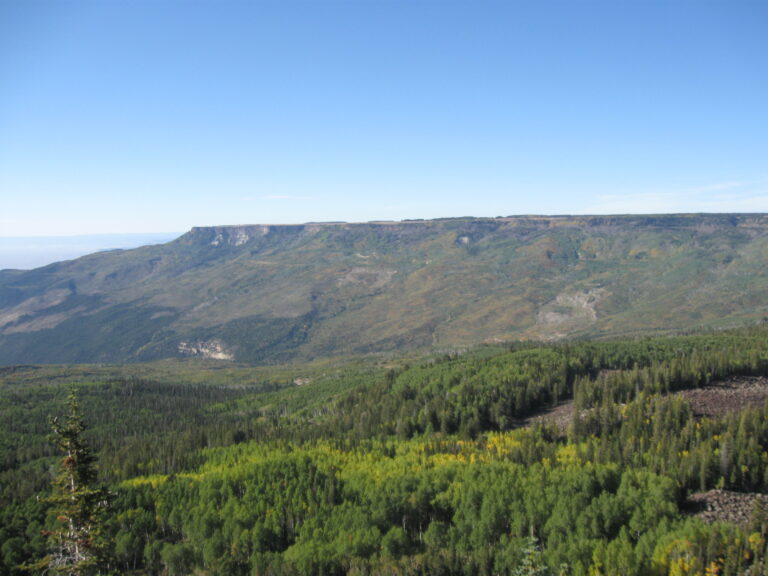 Steven Sherer and his wife Pat moved to Colorado’s Western Slope from Hawaii in 2008 with the intention of buying a small acreage in the Palisade area so they could have a few horses. Instead, they bought a peach orchard, and now operate a nine-acre orchard with 3,600 trees. Palisade, with its favorable 182-day growing season and lots of sunshine, is known as “The Peach Capital” of Colorado.
Steven Sherer and his wife Pat moved to Colorado’s Western Slope from Hawaii in 2008 with the intention of buying a small acreage in the Palisade area so they could have a few horses. Instead, they bought a peach orchard, and now operate a nine-acre orchard with 3,600 trees. Palisade, with its favorable 182-day growing season and lots of sunshine, is known as “The Peach Capital” of Colorado.
The Sherers borrowed from the 50th state in naming their new business Aloha Organic Fruit. They use a Hawaiian lei as part of their logo.
Aloha, in Hawaiian, means care, respect and affection — all of which are embodied in their 100 percent certified organic fruit.
“The spirit of aloha guides us in how we care for the earth and in choosing organic, sustainable agricultural practices,” says Sherer, who retired as a building contractor in Hawaii. “It is our life’s work to embody aloha, with love and respect on our farm and products, and with our neighbors, community and customers.”

On a tour of Aloha Organic Fruit, Sherer explained the complicated steps of managing the trees and the soil year-round to produce organic peaches. For example. instead of killing insects with pesticides, the orchard fights insects with organic oils and mating-disruption sex hormones.
Conventionally grown produce, like peaches, can contain high levels of pesticide residue, due to absorption of these chemicals through their thin, delicate skin. Twelve fruits and vegetables containing the highest levels of pesticide earn a spot on the “Dirty Dozen” list. First offender on the “worst” list is celery, followed by peaches.
Sherer’s orchard produces 11 varieties of peaches that mature at different times to allow harvesting and shipping of truly tree-ripened peaches from July to October. The farm store features their organic peaches, plus organic jams and jellies made under their own label and other organic products. The shelves are also filled with their favorite foods from Hawaii, including Kona coffee, macadamia nuts and Hawaiian beverages. Local Colorado crafts, such as pottery and rope baskets, also line their shelves.
As we walked through the orchard, we were startled at first to hear a loud “pop” that resembled a firecracker. We soon found out that these pops are scientifically engineered to scare away birds from pecking at the peaches when they get near a tree.
The orchards on Colorado’s Western Slope depend on the Colorado River for irrigation. As we continued our agritour, we saw the irrigation pump station that brings water from the Colorado River and puts it in a holding pond. Then the water is distributed to the trees via underground plumbing and ultimately through an overhead Microjet spray system.
Springtime is a crucial time for orchard owners, according to Sherer. During the trees’ blossoming time, he sometimes logs night hours to carefully watch the temperature. When the temperature drops to near freezing, he must turn on the wind chargers in the orchard to keep the peach blossoms from freezing, which would destroy his future crop. The wind chargers blow warmer air across the trees when there is a cold air inversion in the orchard.
As the tour ended, we entered the packing shed where just-picked peaches are carefully sorted, weighed and gently packed by hand into boxes. We saw how “seconds” are put aside because of their smaller size or imperfections and sold at a discount in their store. Only No. Ones go to market. We then moved to the walk-in cooler, which chills the peaches to 35 degrees. Once chilled, they are ready to sell at farmers’ markets in Meeker and Palisade and other Colorado cities.
If You Go
Aloha Organic Fruit
3425 G Road
Palisade, Colorado 81526
970-464 2272
www.alohaorganicfruit.com
Complimentary tours of the Aloha Organic Fruit last from 45 minutes to one hour. They are available anytime by appointment from April through October. Large groups are welcome.



